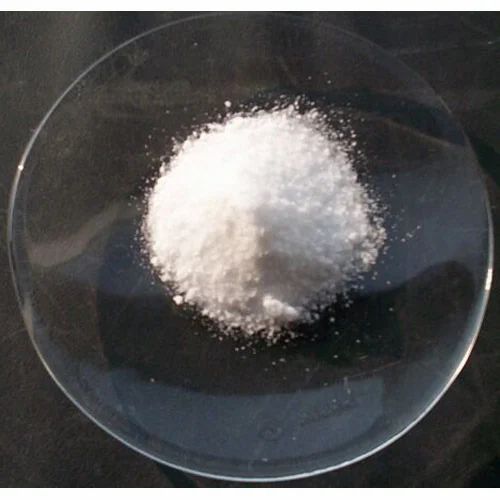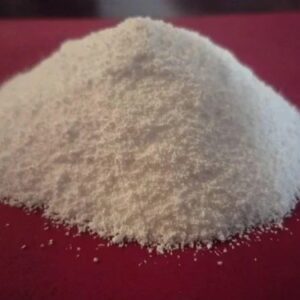Potassium Chloride Powder: The Ultimate Product Guide
Potassium chloride powder, with the chemical formula KClKCl, is an inorganic compound that appears as a white crystalline powder. Renowned for its versatility and various applications, potassium chloride powder is widely used in agriculture, food processing, pharmaceuticals, and industrial processes. This compound is not only an essential source of potassium but also serves as a vital ingredient in many formulations. In this comprehensive product description, we will explore the properties, applications, benefits, and safety considerations of potassium chloride powder, highlighting its significance across multiple fields.
Chemical Properties
Composition and Structure
Potassium chloride is produced through the evaporation of seawater or the mining of potash deposits. It typically appears as a white crystalline powder that is highly soluble in water. The molecular weight of potassium chloride is approximately 74.55 g/mol.
Physical Characteristics
- Appearance: White crystalline powder
- Molecular Weight: 74.55 g/mol
- Solubility: Highly soluble in water; insoluble in alcohol
- pH: Neutral in solution
- Melting Point: Approximately 770 °C
These properties make potassium chloride powder suitable for a wide range of applications across various industries.
Applications of Potassium Chloride Powder
1. Agriculture
Potassium chloride is predominantly used in agriculture for its beneficial properties:
- Fertilizer: It serves as a primary source of potassium, an essential nutrient that promotes plant growth, enhances crop yield, and improves fruit quality. Potassium plays a critical role in photosynthesis and overall plant metabolism.
- Soil Amendment: Potassium chloride helps improve soil fertility, ensuring that crops receive adequate nutrients for optimal growth.
2. Food Industry
In the food industry, potassium chloride is utilized in various applications:
- Salt Substitute: It is commonly used as a salt substitute, providing a similar flavor profile with less sodium, making it an excellent option for those on low-sodium diets.
- Preservative: Potassium chloride can act as a preservative in processed foods, extending shelf life and inhibiting microbial growth.
3. Pharmaceuticals
In the pharmaceutical sector, potassium chloride is employed for its beneficial properties:
- Electrolyte Replacement: It is widely used in medical treatments to replenish potassium levels in patients with deficiencies, particularly in intravenous solutions.
- Active Ingredient: Potassium chloride is often included in medications and supplements aimed at maintaining electrolyte balance in the body.
4. Chemical Manufacturing
Potassium chloride powder plays a vital role in chemical manufacturing:
- Reagent: It is used as a reagent in various chemical reactions, particularly in the production of potassium compounds and other chemicals.
- Synthesis of Chemicals: Potassium chloride serves as an important starting material for the synthesis of potassium hydroxide, potassium carbonate, and other potassium salts.
5. Water Treatment
Potassium chloride is utilized in water treatment processes:
- Water Softening: It is commonly used in water softeners, helping to remove calcium and magnesium ions from hard water, thereby improving water quality and extending the lifespan of plumbing systems.
- Disinfection: Potassium chloride can also be used in water disinfection processes to maintain water quality.
Advantages of Using Potassium Chloride Powder
1. Nutrient-Rich
One of the primary advantages of potassium chloride is its rich potassium content. It provides an essential nutrient crucial for plant health, making it a valuable resource for agricultural applications.
2. Versatility
Potassium chloride is a versatile compound with applications across multiple industries, including agriculture, food processing, pharmaceuticals, and chemical manufacturing. Its multifunctional properties make it a valuable resource for manufacturers and professionals seeking reliable solutions.
3. Cost-Effectiveness
Compared to other potassium sources, potassium chloride is often more affordable, providing significant benefits without requiring large quantities. This makes it an economical choice for farmers and food manufacturers alike.
4. Safety Profile
Potassium chloride is generally regarded as safe for use in food, pharmaceuticals, and other applications when handled properly. Its low toxicity ensures that it can be used without significant health risks.
How to Use Potassium Chloride Powder
1. In Agriculture
When using potassium chloride in agricultural applications:
- Fertilizer Application: The recommended dosage typically ranges from 200 to 400 kg per hectare, depending on soil tests and crop requirements.
- Soil Incorporation: It can be mixed into the soil or applied as a foliar spray to improve nutrient availability and enhance plant growth.
2. In Food Processing
For food applications:
- Dosage: The recommended dosage typically ranges from 0.5% to 2% of the total weight of the product, depending on the specific application.
- Incorporation: It can be mixed with other ingredients during the processing stage to ensure even distribution and stability.
3. In Pharmaceuticals
When incorporating potassium chloride into pharmaceutical formulations:
- Formulation: Use it as an electrolyte replacement at recommended concentrations, typically around 1% to 3%.
- Quality Control: Regularly monitor the stability and efficacy of formulations to ensure compliance with industry standards.
4. In Chemical Manufacturing
For chemical manufacturing applications:
- Reagent Use: Add potassium chloride as specified in the formulation for synthesizing potassium compounds. Follow established protocols to ensure accurate measurements and safe handling.
- Intermediate Production: Utilize it in the production of other potassium salts and compounds.
5. In Water Treatment
When using potassium chloride in water treatment:
- Dosage: Follow local regulations and guidelines for the appropriate dosage of potassium chloride in water softening and treatment processes.
- Monitoring: Regularly test water quality to ensure compliance with health standards and adjust potassium chloride levels as needed.
Safety and Handling
1. Toxicity
Potassium chloride is generally considered safe for use in food, pharmaceuticals, and other applications. However, excessive exposure may cause irritation to the skin, eyes, and respiratory tract.
2. Protective Measures
When handling potassium chloride powder, it is crucial to:
- Wear Protective Gear: Use gloves, goggles, and appropriate lab attire to minimize exposure risks.
- Ensure Proper Ventilation: Work in a well-ventilated area to avoid inhaling dust or fumes.
3. Storage
Store potassium chloride powder in a cool, dry place away from direct sunlight and moisture. Ensure that containers are tightly sealed to prevent contamination and degradation.
Environmental Considerations
Potassium chloride is considered environmentally friendly when used according to recommended practices. However, proper disposal methods should be followed to minimize any potential impact. Always adhere to local regulations regarding chemical waste disposal.
Conclusion
Potassium chloride powder is a versatile and essential compound widely used in agriculture, food processing, pharmaceuticals, chemical manufacturing, and water treatment. Its unique properties, including its nutrient profile, solubility, and safety, make it an invaluable resource for professionals across various industries.
When purchasing potassium chloride powder, choose reputable suppliers that provide high-quality products and detailed safety data sheets. Understanding its applications, benefits, and safety measures will help you maximize the potential of this remarkable compound in your projects.
Whether you’re a farmer looking to enhance crop yields, a food manufacturer aiming to improve product quality, or a pharmaceutical professional seeking effective electrolyte replacements, potassium chloride powder can meet your needs. Embrace the advantages of this compound and unlock new possibilities in your field!





Reviews
There are no reviews yet.